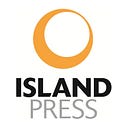Lessons from Maui: Quicker Responses Needed To Address Long-Term Health Impacts from Disasters
By Martina Kamaka, MD, Alika Maunakea, PhD, Ruben Juarez, PhD
The world watched in horror as Lahaina and parts of Kula on the Hawaiian island of Maui burned to ashes on August 8, 2023. The deadliest U.S. wildfire in more than a century killed 101 people — devastating lives, destroying homes and businesses, and polluting land and water with toxins from smoke and burnt residues.
The fire’s impacts on survivors’ health and wellbeing is ongoing. A recent report of the Maui Wildfire Exposure Study (MauiWES) highlights adverse impacts on survivors. Data from the initial 679 wildfire-affected participants, comprised of a wide range of ages and ethnicities, paint a grim picture. Survivors suffer from decreased household income (74%), unemployment (20%), lack of permanent housing (90%), and food insecurity (42%). An astounding 60% experience poor respiratory health, including 40% with various degrees of lung obstruction. Along with higher rates of hypertension and compromised kidney function, 51% experienced depression (4.4% with suicidal ideation). Blood levels of toxic substances are pending.
These data are a powerful warning of unmet health needs and serious future consequences. The World Trade Center studies caution us that Maui wildfire survivors are at elevated risk for cancer and chronic cardiac, kidney, and lung disease and mental health problems.
We need to understand and address both the short- and long-term health impacts of disasters. MauiWES attempts to meet this need, but has struggled for sustained funding.
The problem is not limited to Maui. Our current health care system is ill-equipped to mitigate health impacts of disasters, especially among vulnerable, underserved communities lacking in health research infrastructure. These lessons learned from the Maui fires can inform a new approach to the health impacts of disasters:
Support community-based disaster response. Communities know best what they need. Grassroots efforts in Maui were able to address urgent health needs — food, water and shelter — quickly and effectively. In addition, funding from local nonprofits and community-based organizations were nimble and quickly dispensed. However, not all communities have access to these funding mechanisms. Disadvantaged communities, which are most likely to suffer from the adverse impacts of disaster, also have the least political power and community resources.
Pay attention to the long term. Federal agencies and charities — such as FEMA and the Red Cross — can arrive fairly quickly after a disaster, but they are not focused on long-term health impacts. Research can help understand these health risks. Quick action is necessary as damaging toxins may be detectable in blood tests immediately after exposure, but not later. Access to that information could help avoid or prepare for long-term impacts.
Deploy research funding quickly. The National Institutes for Health (NIH) provides most federal funding for health research, but even the NIH’s Time Sensitive R61/R33 Opportunity for Health Research funding mechanism turned out to be slower than promised (4–5 months) and reviewers were not familiar with the need for speed in researching and addressing disaster-related health impacts. The NIH needs a quick, nimble, and flexible funding mechanism, similar to the NSFʻs rapid-response protocol, to collect disaster-related data. That protocol would allow an NIH Director to quickly release initial funds without the usual time-intensive, academic-leaning peer review process. This would allow researchers to gather health-relevant data quickly while working on long-term grant funding to robustly study etiologies.
One might argue that we already have systems in place to address these needs, prevent fraud and assure scientific rigor. But Maui has demonstrated that our systems are too slow and bureaucracy is yet another barrier for helping those in crisis. At the same time, natural disasters such as extreme heat, wildfires and severe weather events are increasing — along with short- and long-term health consequences. Research helps understand those risks, and allows us to address them. It is time to change our disaster-related healthcare responses and research funding mechanisms. Our health depends on it.
—
Dr. Martina Leialoha Kamaka is a Native Hawaiian Family Physician and Associate Professor in the Department of Native Hawaiian Health at the University of Hawai`i at Mānoa, John A. Burns School of Medicine. Her medical interests include Native Hawaiian and Indigenous health and health disparities, cultural competency /humility training and workforce development. She currently a CHEF Fellow (Climate and Health Equity Fellow), Vice Chair of NCAPIP (the National Council of Asian Pacific Islander Physicians) and founder and previous board member of the ʻAhahui o nā Kauka (Association of Native Hawaiian Physicians) and the Pacific Region Indigenous Doctors Congress (PRIDoC).
For more than 20 years, Dr. Alika Maunakea has focused on addressing health disparities in Hawaii’s communities through research in epigenetics and interdisciplinary biomedical studies. As a Native Hawaiian scientist, he has pioneered genome-wide technologies to study DNA methylation and histone modifications, uncovering their roles in disease. Dr. Maunakea collaborates with clinical, behavioral, and economic researchers, mentors underrepresented students, and leads community-based projects such as the Maui Wildfire Exposure Study.
Dr. Ruben Juarez is the UHERO-HMSA Distinguished Professor at the University of Hawaii Economic Research Organization and the Department of Economics at the University of Hawaii. He co-directs the Maui Wildfire Exposure Study along with other multidisciplinary community-based cohort studies in Hawaii. As the leading researcher in economic behavior and socioeconomic networks in Hawaii, Dr. Juarez leverages community-based participatory research to uncover social determinants of health, aiming to influence policy and support underserved populations.
